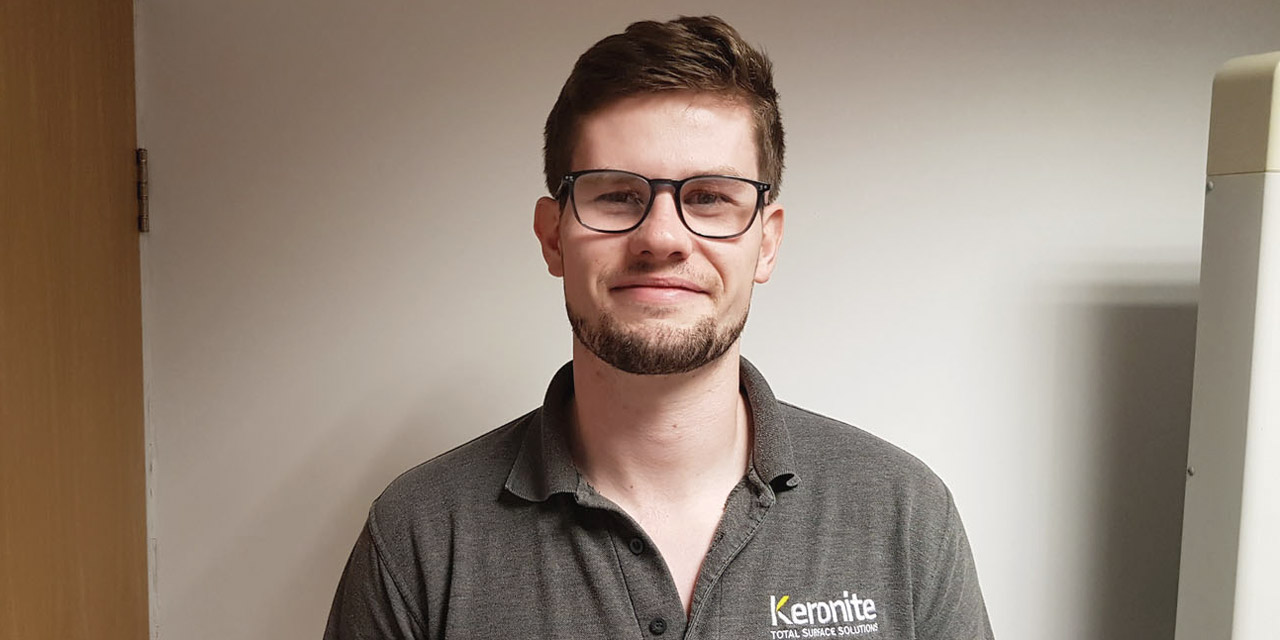A step beyond Lean manufacturing? An interview with Max Hutchins
It can take years, sometimes even decades, before a new technology gets introduced to the market. In materials science, a new surface coating may not even make it out of the lab without the right industrialisation process in place. But even once a coating makes it out of a laboratory, it needs to meet the ever-changing needs of the market to bring the biggest benefit to customers. This requires yet another process: continuous improvement.
We spoke to Max Hutchins, newly appointed senior manufacturing engineer at Keronite, about continuous improvement in a fast moving, highly scientific environment. He told us about the company’s new martial arts-inspired improvement methodology. It was pioneered, and still used, by companies like Toyota and General Electric, and it’s helping Keronite improve plasma electrolytic oxidation (PEO) each and every day.
Improvement: the art and the science
In the 1970s, Japanese manufacturers led the way for high-quality manufacturing. Their deeply ingrained culture of implementing small improvements all the time, a technique named kaizen, caught the eye of manufacturers across the world. Kaizen is the literal translation of ‘continuous improvement’ in Japanese. Even today kaizen is an integral tool in modern day operations management.
Throughout history, the most successful manufacturers have worked to continuously improve their products and offering to customers. For Keronite, this means speeding up lead times while continuing to improve the world’s most advanced surface coatings for light alloys.
Max Hutchins joined Keronite as an operations engineer. He was responsible for deploying PEO coatings on to customer components, which at the time was very much focused on high-end sports equipment and aerospace components. “I joined as an operations engineer, back when Keronite was really beginning to scale its volume manufacturing business. This was in a time before we had an autonomous production line in place”, explains Max, having joined the company prior to completing his Masters in Materials Science at Cambridge.
Small leaps, giant steps
Over Max’s time at Keronite, the company has installed its first autonomous production line, launched a US manufacturing division, and is now on the verge of opening a new UK technology centre. The new centre will effectively double the company’s manufacturing capacity.
The major growth in volume manufacturing has made continuous improvement vital. This ensures Lean manufacturing cells are as ‘lean’ as they can be, so Keronite’s customers can benefit from faster lead times, higher throughputs and measurably better quality.
We spoke to Max days before he was heading to Indiana, where Keronite’s US manufacturing facility is based, to deliver training and review one of the continuous production lines just launched for a leading aerospace manufacturer. He visits the facility regularly but is always on-hand to provide support and diagnose manufacturing issues before they manifest. He also creates and implements training matrices, bespoke to every production project, which helps projects run smoothly.
Trial by combat
Keronite’s volume manufacturing business has scaled exponentially over the past 4 years. As well as dealing with a greater throughput, Keronite’s materials scientists are developing increasingly sophisticated coatings for customers’ exacting requirements. The company had already instilled a culture of ‘Lean’ manufacturing, but Max is pushing the company towards a project-oriented methodology called lean six sigma.
“Lean six sigma is a methodology which teaches you how to implement changes on a project-by-project basis,” Max explains. Lean six uses the tools of Lean manufacturing to effect change based on continuous improvements. “There are five tenants; separating unnecessary processes, straightening items for optimal processing time, shine to maintain cleanliness, standardisation, and sustainability,” Max continues.
Unlike many certifications, which has several levels, Lean Six Sigma practitioners are awarded belts, as in martial arts. Keronite has several engineers with yellow belts, but Max is working towards Six Sigma Black Belt – which will put the company at the same grade as many world-leading manufacturers (including GE and Toyota).
Learning to get better
Continuous improvement is the fifth and final stage of Keronite’s new product introduction process, and it applies to both the technology, through research and development, and Keronite’s manufacturing arm, through Max and the rest of Keronite’s engineering team.
Keronite’s focus on technology and culture of innovation are still engrained deep within the culture of the company, helping develop ongoing improvements for customers. This is helping increase processing throughput that directly reduces costs, lead-time reduction to benefit customers working capital and supply chain management to reduce any admin or logistical burden.
Learn more about the company behind the world’s most advanced surface treatments here, or get familiar with plasma electrolytic oxidation, our surface technology.
